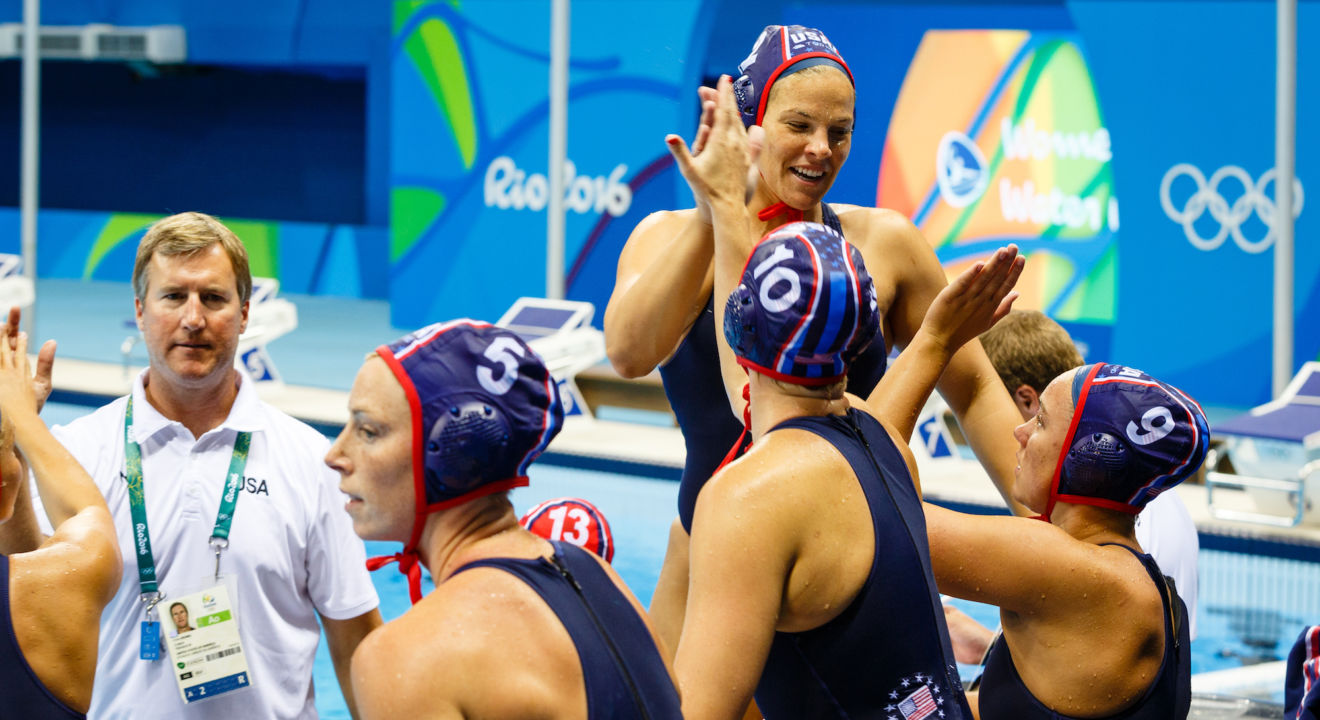Accomplish July 12, 2017
But it has definitely changed me.


When people ask what I do, my immediate answer is, “I play water polo.”
I have been playing water polo since I was 10 years old. I was on my neighborhood swim team when my coach pulled me aside and told me I should come try a practice with his 10 and under, co-ed water polo team.
Clearly he had noticed how uncoordinated I was on land and figured my decent swimming abilities could keep me afloat during the practice.
Little did I know I would be playing for a nearly all-boys team. I looked around and realized I was one of two girls on the team, surrounded by almost 15 rowdy, 10-year-old boys.
Since being on that 10U team, I have played eight years of club water polo, four years of varsity high school water polo, four years of varsity swimming and two years of varsity collegiate water polo… and right before my sophomore collegiate season, for the first time in 10 years, I stopped and genuinely considered quitting.
Even after missing countless high school formals, friends’ birthdays and weekend trips, I sincerely loved the sport. Missing out on the social occasions was far-outweighed by the things this sport had given me.
It had afforded me more opportunities than I thought possible. I had travelled all over California, to Hawaii and to New Zealand for high school and club tournaments, and when I was deciding where to go to college, I couldn’t even imagine going to a school where I wouldn’t play water polo.
As school has always been a priority in my life, when I was deciding where to go to college, I sacrificed playing higher-level water polo, or a shot at NCAA championships, to pursue my education. So I committed to playing water polo at a smaller, East coast school.
As most probably realize, women’s water polo is not the most common sport, especially on the East coast. Coming from Southern California, the hub of water sports, it was foreign to me that most of my new best friends had never even seen a game before.
On top of playing a sport that nobody really seemed to care about, I had a whole new set of priorities attending a relatively small, liberal arts school. While most of my friends were also athletes, they were involved in 10 other clubs, service organizations and committees. I was surrounded by overachievers, and for the first time in my life it seemed as though playing water polo was closing more doors than it was opening.
There was even a stigma against student athletes in college. Since we had been recruited or aided in our acceptance, we were less deserving of our spot at this institution.
I had always regarded playing water polo as something I loved and, even more than that, something I was proud of. I had spent countless hours with my team for as long as I could remember, and I couldn’t quite wrap my mind around the fact that the sport seemed to now be inhibiting me.
After putting so many hours and so many years into this sport, I thought it was a fluke the first time the idea of quitting even flitted across my mind. How could I give up something I was so used to? What would my life be like without my team? What would I even do with all that extra time?
In the weeks leading up to my sophomore collegiate season, I wrestled with this idea of my life without water polo for nearly a week, constantly flip-flopping from dreaming of afternoons that didn’t include jumping in the freezing pool and wondering who I would even eat abnormal amounts of food with if I wasn’t on the team anymore.
After a year of going to college and living on the East coast, my priorities had changed and the role of water polo in my life had changed with it.
Despite dealing with a few lost opportunities and the stigma against athletes, I decided to remain on the team. I had committed to my coach and to my teammates to play water polo for my school.
I am embarrassed to say that I wanted to quit just because that experience wasn’t what I expected to the T, and I didn’t realize that it was me who needed to change and adapt to make it what I wanted it to be.
I had thought that playing so much water polo for so long was what had defined me, when it was really the conscious daily choice I made to dedicate myself to this sport and to my team that really made me who I am.
Had I decided to quit, I would have gained a lot more free time, but I would have lost something that had done so much to shape me over the past 10 years.